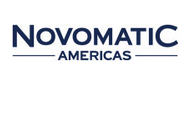
In this, the 11th annual issue of Tribal Government Gaming, we cover the full scope of issues related to casino gaming in Indian Country. From the updated designs and renovations of the existing casinos, to the new Class II slot machines, to the possibility of iGaming, in this issue we tried to envision a tribal gaming industry of the future.
There is no doubt that gaming is reaching a saturation point in the United States. States hungry for tax revenues, tribes anxious to provide more economic development in their communities, and companies ready to ramp up their existing casinos to the next level are all driving this increase in gaming across the country. Existing tribal and commercial casinos are facing more competition, and even the new casinos are immediately put under the competitive microscope. The number of gamblers doesn’t seem to be growing, but their choices certainly are. So, existing casinos have to develop new reasons for people to come. Those reasons include more entertainment, hotels, meetings and conventions, spas, tourism and more. If done in an efficient manner with the wants and needs of customers and potential customers in mind, renovations and additions can make a big difference.
When you’re in a highly competitive environment, cost-cutting becomes an important element. There are several ways to do this, but one of the most gratifying is reducing the money paid to the state government via “fees” or outright taxes. As we all know, Class II machines are generally not considered taxable items because the state has no oversight over Class II gaming. So tribal casinos wanting to save on revenue-sharing payments to the state can add Class II games as a way to lessen that burden. The good thing is that it’s no longer your father’s Class II games. They are as robust and full of features as most Class III games.
Of course, the debate over iGaming cuts both ways. While iGaming can become another revenue stream for tribes, it can also threaten the very economic development with gaming upon which tribes have come to depend. While few tribes really want to consider internet gambling, it’s one of those issues that won’t go away. There are millions of dollars already being wagered online, and if you don’t think your casino is already being affected by iGaming, you aren’t paying attention. A rational, sensible and effective way to approach iGaming must be an essential element of any tribe’s strategy for the future.
The role of iGaming falls under the heading “If you can’t beat ‘em, join ‘em.” That’s been true of several of the larger tribes across the country when it comes to commercial casinos. But is it an effective strategy for smaller, more remote tribes? Is the “off rez” issue a challenge or an opportunity? Only tribal leaders can determine that. But would it make sense to buy struggling, stand-alone properties as some small gaming management companies are doing? Tribal casino executives have the expertise to operate in remote rural environments and congested urban areas. Wouldn’t it make sense to use that expertise for the benefit of the tribal gaming enterprise?
The most effective way of attracting new customers is via marketing. But in most cases marketing campaigns are “been there/done that” kinds of affairs. Tribes need to think outside the box to bring new excitement to their facilities and consider campaigns and activities that haven’t been tried before. Yes, that can often be risky, but risk-taking can also be rewarding. Remember, the casino business has always been a “me-too” business, with marketers constantly copying successful campaigns. It’s always best to be the leader.
As we can see, the future of tribal gaming is clearly tied to expanding the market. While there are still a few tribal casinos yet to open—albeit in major regions like Massachusetts and California—the boom growth years for Indian gaming are over. So organic growth is the only way to expand. We hope that this year’s edition of Tribal Government Gaming helps you to crystalize the strategies you need to move your tribal gaming enterprise to the next level.


















